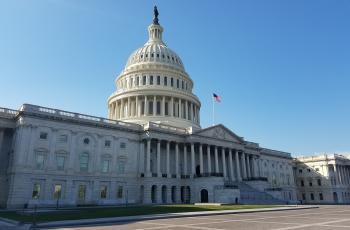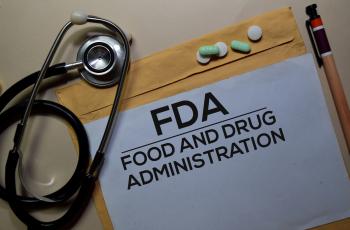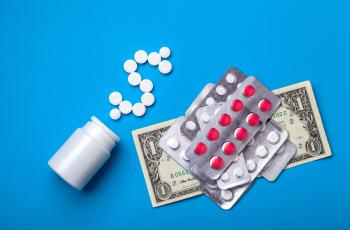News Updates - 3/5/2021
With this series we will bring you the latest news in diabetes advocacy and policy. This week we cover news updates in insulin affordability, time in range, government and legislation, stigma and society, and insurance and access to care.
Insulin Affordability
Drug pricing negotiations could lead to lower insulin costs
Democrats are advocating that the government should be able to negotiate drug pricing directly with pharmaceutical companies. Policymakers have long advocated for this strategy to lower drug costs but it has met fierce opposition from pharmaceutical companies.
Why it matters: The average annual insulin cost for a person with diabetes is $6,000. The price of insulin, and other life-sustaining diabetes medications, is unaffordable for many people with diabetes. It is vital that policymakers find a way to lower drug costs.
Revisiting insulin: How the medicine got so expensive
Kaiser’s updated podcast episode covers the history of insulin, insulin pricing, and how people with diabetes are advocating for insulin access. Listen in for patient stories about the struggle to afford insulin and what can be done to address insulin costs.
Why it matters: Insulin is unaffordable for many people with diabetes. As we celebrate the 100th anniversary of the discovery of insulin, understanding how the medicine got so expensive is vital in learning how to lower these drug costs.
Government and Legislation
Policymakers rally around permanent telehealth expansion
As the COVID-19 vaccine rollout gains speed in the US, policymakers are advocating for permanent telehealth expansion beyond the pandemic. A recently proposed bill aims to eliminate geographic restrictions on where Medicare patients can access telehealth services.
Why it matters: Access to telehealth services increases people’s access to healthcare by giving them more healthcare options. People with diabetes can use telehealth and remote patient monitoring to more easily consult with their healthcare team. The expansion of telehealth will end with the COVID-19 Public Health Emergency if we do not pass legislation to permanently expand telehealth access.
What you can do: Join diaTribe Change in advocating for the permanent expansion of telehealth access to keep people with diabetes safe and healthy. Click here to take action.
Xavier Becerra, Biden’s nomination to lead the Department of Health and Human Services (HHS), recently appeared before the Senate Health Committee. In addition to addressing COVID-19, Becerra referenced access to insurance, drug costs, and racial health disparities as his top priorities.
Why it matters: The head of the HHS has the power to influence federal health insurance programs, medical research, and drug approvals. If appointed, Becerra could impact the lives of people with diabetes by helping to lower the cost of insulin and expanding the Affordable Care Act.
What's next: Becerra’s nomination is facing considerable opposition in the Senate. However, with Democratic control of the Senate, Becerra still has a good chance of being appointed. After clearing the Senate Finance Committee on Wednesday, the nomination is now headed to the Senate floor.
$1.9 trillion COVID-19 relief package passes in the House, moves to the Senate
The $1.9 trillion COVID-19 relief bill passed the House of Representatives on Saturday. This bill includes $1,400 stimulus payments, a COVID vaccine, testing and contact tracing program, among other components.
Why it matters: If passed, this COVID-19 relief package would help support the millions of people with diabetes who are struggling due to the COVID-19 pandemic. The relief bill also aims to increase access to health insurance by expanding subsidies under the Affordable Care Act.
What's next: The Senate is voting this week on the COVID-19 relief bill. Components of the bill will receive considerable opposition. For example, the Senate already voted against the proposed $15 minimum wage. Learn more here.
What you can do: Join the American Diabetes Association in advocating for people with diabetes and prediabetes in the COVID-19 relief bill. Learn more here.
Who will Biden pick for FDA Commissioner?
President Biden has still not announced his pick for FDA Commissioner, despite mounting pressure to do so. The top contenders are Janet Woodcock, the acting FDA Commissioner, and Josh Sharfstein, a former FDA official with the Obama Administration.
Why it matters: The FDA oversees the regulation of drugs and technology in the US, and has a major role in which diabetes therapies and technologies are available to the public. Sharfstein’s impressive background in public health policy and Woodcock’s long history with the FDA make both individuals well qualified for the role.
Time in Range
How COVID-19 could usher in a new role for continuous glucose monitoring in hospitals
Continuous Glucose Monitors (CGMs) were designed for remote patient monitoring at home. However, hospitals have been using CGMs for patients with diabetes during the COVID-19 pandemic to help manage their glucose levels while maintaining social distancing.
Why it matters: CGMs have not been approved by the FDA for use in hospitals but they have proven useful during the pandemic. CGMs help to manage glucose levels and help to increase people’s time in range. There is not enough data on CGM use in hospitals for FDA approval, but the pandemic provides an opportunity to prove the merit of CGM use in hospitals.
Insurance and Access to Care
Healthcare organizations propose steps towards universal coverage
Several healthcare organizations, including America’s Health Insurance Plans, the American Benefits Council, and Blue Cross Blue Shield, have proposed six steps that could help the US achieve universal healthcare coverage. The proposed strategies mainly focus on “bolstering the Affordable Care Act and Medicaid.”
Why it matters: Prior to the COVID-19 pandemic, 14.9% of people who don’t qualify for Medicare were uninsured. Due to COVID-19 related job loss, millions more have lost their health insurance. Without health insurance, it is more difficult for people with diabetes to afford life-saving healthcare, medications, and technologies. Achieving universal healthcare coverage requires a commitment from stakeholders throughout the healthcare industry, including payers.
CMS dedicates $2.3 million to help encourage ACA sign-ups during special enrollment period
The Biden Administration has dedicated $2.3 million to support Affordable Care Act (ACA) health insurance registration in low-income communities. The money was directed to ACA navigator programs that help promote the special enrollment period, ending May 15th, and helps people apply for insurance.
Why it matters: Funding for these ACA navigator programs was cut by the Trump Administration. COVID-19 related job loss has led to an increase in uninsured Americans. The special enrollment period for health insurance under the ACA and the navigator programs are an opportunity to get insurance coverage for the people in most need of healthcare.
Stigma and Society
How does stigma impact people with type 2 diabetes?
“Diabetes stigma occurs when a person living with diabetes feels excluded, rejected, or blamed for living with a chronic condition, say researchers.” This resource breaks down diabetes stigma, where it comes from, and it’s lasting impact on people with diabetes.
Why it matters: Experiences with diabetes stigma are linked to feelings of depression, anxiety, and distress. Stigma can be a major barrier to care for people with diabetes and it can make managing the chronic disease more difficult.
What you can do: Read this diaTribe Learn article to learn about ways to address diabetes stigma and support people with diabetes!
FDA approves J&J’s single dose COVID-19 vaccine
The FDA cleared Johnson & Johnson’s single-dose COVID-19 vaccine. This is the third COVID-19 vaccine to be approved, in addition to the Moderna and Pfizer vaccines.
Why it matters: In contrast to the two doses needed for the Moderna and Pfizer vaccines, the Johnson & Johnson vaccine requires a single dose and does not need to be frozen when shipped and stored. This means that millions more people will have access to a vaccine and Biden has stated that there will be enough vaccines for all US adults by May. This is promising news for people with diabetes who have been disproportionately impacted by the pandemic.
What's next: Johnson & Johnson has pledged to increase it’s vaccine production to 20 million by the end of March. Merck, another pharmaceutical company, has agreed to help produce the Johnson & Johnson vaccine.


